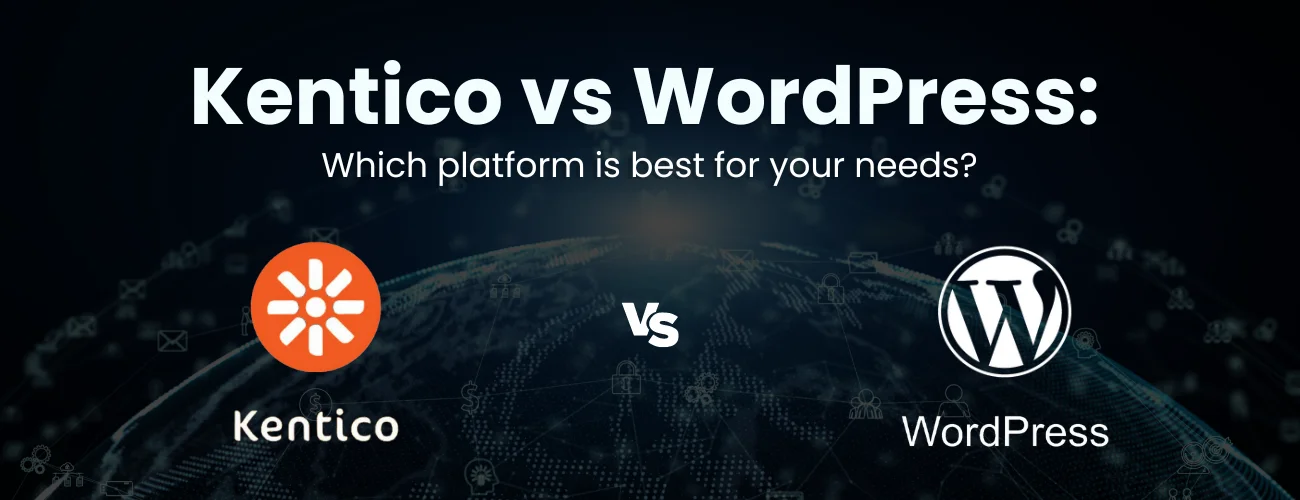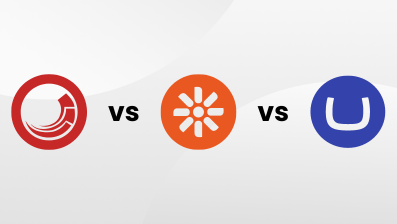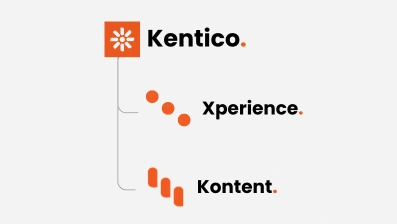Choosing the right content management system (CMS) for your website is like picking the perfect tool for a job—it can make or break your entire project.
Whether you’re building a simple blog or a complex enterprise website, the CMS you choose will impact your site's functionality, scalability, and even security.
When it comes to Kentico and WordPress, both are strong contenders, but the right one depends on what you need.
Are you aiming for a small, easy-to-manage website? Or do you want something built for the big leagues, capable of handling large volumes of traffic with complex customizations?
In this comparison, we’ll dig deep into both Kentico and WordPress, looking at their strengths, weaknesses, and how each one stacks up based on your business goals.
Stick with me, and by the end, you’ll have a clear idea of which CMS will be your best bet.
Ready to explore? Let’s get started!
Overview of Kentico
If you’ve got big plans for your website—whether it’s handling e-commerce, multiple languages, or strict security needs—Kentico might be your knight in shining armor.
It’s a powerful, enterprise-level CMS designed to handle more complex websites and digital experiences.
Kentico isn’t just about creating a website; it’s about crafting the website that can scale and grow with your business.
You get robust customization options, integrated marketing tools, and a platform that’s built for performance.
With features like advanced security protocols and built-in analytics, you can keep a close eye on how your site is performing.
So, if your business is looking to take the plunge into something substantial, Kentico could very well be the way to go, especially if you're weighing it vs WordPress.
In short, if you're aiming for an enterprise solution that offers flexibility and scalability, Kentico stands out.
Are you excited to see how it compares with WordPress? Let’s dive into the overview of WordPress next!
Overview of WordPress
On the flip side, we have WordPress.
You’ve probably heard of it, right? It powers over 40% of the web, and for good reason.
WordPress is incredibly user-friendly, making it perfect for beginners and small businesses who want to get online quickly and easily.
With its extensive library of plugins, you can add just about any feature you want without needing a PhD in coding.
Think of it as the Swiss Army knife of CMS platforms—flexible, versatile, and ready to adapt to your needs.
However, while it’s great for smaller projects, WordPress can sometimes struggle under heavy traffic or complex configurations.
If your vision is straightforward and you want something you can manage without a steep learning curve, WordPress might be right up your alley.
So, when considering Kentico vs WordPress, it really comes down to what you’re looking for.
Want simplicity and ease of use? WordPress has got you covered.
But if you need something more powerful and scalable, Kentico is your best bet.
Curious about how these platforms stack up in terms of features? Let’s dive into a detailed comparison!
Kentico vs WordPress: A Feature Comparison
When it comes to Kentico vs WordPress, one of the most crucial factors to consider is the feature set each platform offers. Let’s break it down into key areas with a handy table for easy reference.
Feature | Kentico | WordPress |
Ease of Use | More complex, requires a learning curve. | User-friendly, intuitive interface. |
Customization & Flexibility | Deep customization options available. | Flexible, but relies heavily on plugins. |
Security | Robust security features out of the box. | Vulnerable without proper plugins and updates. |
Scalability | Built for high traffic and complex sites. | Best for small to medium-sized sites; may struggle with growth. |
Support | Premium support options available. | Community support; timely help can be hit or miss. |
Multilingual Capabilities | Advanced built-in support for multiple languages. | Requires plugins for multilingual functionality. |
E-commerce | Enterprise-level e-commerce features. | Popular for small e-commerce through WooCommerce. |
Let’s break it down into key areas to help you understand how they stack up.
Ease of Use
WordPress shines here.
It’s incredibly user-friendly, perfect for those who want to dive in without a steep learning curve.
With a simple dashboard and an intuitive interface, you can start creating content in no time.
Kentico, on the other hand, can be more complex.
While it offers a wealth of features, it may require a bit of a learning curve, especially for those who are not technically inclined.
Customization & Flexibility
When it comes to customization, Kentico takes the cake.
You have deep customization options, allowing you to tailor the platform to your specific needs.
Whether you need custom modules or specific integrations, Kentico can handle it.
WordPress, while flexible, relies heavily on plugins.
You can certainly customize your site, but there’s a limit to what you can achieve without some technical know-how.
Security
In the battle of Kentico vs WordPress, security is a crucial factor.
Kentico comes with robust security features right out of the box.
It’s designed for enterprise-level websites, meaning you get advanced security protocols to protect your data.
WordPress, however, can be vulnerable.
It depends on plugins for security, which means if you don’t keep them updated or choose poorly, you might be at risk.
Scalability
When it comes to scalability, Kentico is built for the big leagues.
It can handle high traffic and complex configurations with ease, making it perfect for large enterprises.
WordPress can support small to medium-sized sites well, but it might struggle as your traffic increases.
If your site grows significantly, you may find yourself needing to migrate to a more robust platform.
Support
Support can be a dealbreaker for many businesses.
Kentico offers premium support options, ensuring that you have access to help when you need it.
This can be a lifesaver when you’re dealing with complex issues.
WordPress relies on community support.
While there’s a wealth of forums and resources, getting timely help can be hit or miss.
Multilingual Capabilities
If your business caters to a global audience, this is important.
Kentico has advanced multilingual capabilities built-in, allowing you to manage multiple languages with ease.
WordPress can also handle multilingual sites, but it often requires additional plugins, which can complicate things.
E-commerce
For e-commerce, Kentico is designed for enterprise-level solutions.
It offers built-in e-commerce features that cater to larger businesses needing robust online shopping capabilities.
WordPress, while popular for e-commerce through WooCommerce, may not be as seamless for large-scale operations.
In this Kentico vs WordPress showdown, it’s clear that each platform has its strengths and weaknesses.
If you’re looking for user-friendliness and a wealth of plugins, WordPress might be your go-to.
But if you need a scalable, secure platform for complex sites, Kentico is hard to beat.
Cost Comparison: Kentico vs WordPress
When it comes to choosing between Kentico vs WordPress, the cost is a major factor that can influence your decision.
Let’s break down the expenses involved with each platform, so you can see what fits your budget best.
Kentico Costs
So, what’s kentico development cost?
Kentico operates on a licensing model.
This means you’ll need to pay upfront for the software, which can range from several thousand dollars depending on the version you choose.
In addition to licensing fees, you may also incur costs for hosting, development, and support.
While the initial investment may seem steep, keep in mind that you’re paying for a robust, enterprise-level platform with built-in features that can save you money in the long run.
Plus, the premium support is invaluable for businesses needing quick resolutions to complex issues.
WordPress Costs
On the flip side, WordPress is open-source and free to use.
You can set up a basic site without spending a dime.
However, costs can creep up quickly depending on your needs.
While the platform itself is free, you’ll need to pay for hosting, premium themes, and plugins.
Some plugins come with monthly or annual fees, and if you want advanced features, you might end up spending more than you anticipated.
So, while you can start small, the total cost can add up, especially if you’re looking to customize your site heavily.
In summary, if you’re looking for a low initial investment, WordPress offers a great starting point.
But be cautious—what starts as a budget-friendly option can turn into a larger expense over time.
Who Should Choose Kentico?
If you're weighing the decision between Kentico vs WordPress, understanding who should choose each platform can help clarify your options.
Kentico is perfect for businesses that have specific, complex needs.
Here’s who might kentico’s benefit the most:
- Enterprise-Level Companies: If your business operates at a large scale and needs a robust, scalable solution, Kentico is built for that. It handles high traffic and complex configurations without breaking a sweat.
- E-commerce Businesses: For those looking to create a sophisticated online store, Kentico offers advanced e-commerce features. You can manage large inventories, customer data, and transactions all in one place.
- Global Brands: If you cater to a multilingual audience, Kentico’s built-in support for multiple languages makes it a great choice. You can easily manage content across various regions and languages.
- Security-Conscious Organizations: If your industry demands stringent security measures, Kentico's enterprise-level security protocols can give you peace of mind.
In short, if you need a powerful, feature-rich platform that can scale as your business grows, Kentico might just be the right fit for you.
Who Should Choose WordPress?
WordPress is best for those who want simplicity and ease of use.
Here’s who would benefit from using it:
- Small Businesses: If you're running a small business or startup, WordPress is budget-friendly and straightforward. You can get your site up and running quickly without needing extensive technical skills.
- Blogs and Content Sites: If your focus is on blogging or creating content-rich sites, WordPress is designed for that. Its user-friendly interface makes publishing articles a breeze.
- Limited Budgets: If you’re looking for an economical solution, WordPress allows you to start small. While costs can add up, you can begin with minimal investment and expand as needed.
- Quick Launch: If time is of the essence, WordPress enables you to build and launch your site faster than Kentico, which may require more setup and customization.
In summary, if you're after a simple, user-friendly solution that lets you get online quickly, WordPress could be the way to go.
So, where do you stand? Ready to wrap things up with a conclusion? Let’s do it!
Why Choose DotStark for Your Kentico Development Needs?
When it comes to harnessing the full potential of Kentico, DotStark is your go-to partner. Our team of experienced developers specializes in creating customized, high-performance websites that align perfectly with your business goals. Whether you’re looking to build an enterprise-level site, enhance your e-commerce capabilities, or improve your online presence, we have the expertise to deliver exceptional results.
At DotStark, we understand that every business is unique. That’s why we take the time to listen to your needs and provide tailored solutions that maximize the power of Kentico. With our commitment to quality, security, and scalability, we ensure that your project is not only successful today but also poised for future growth.
Ready to take your digital experience to the next level? Contact DotStark, your trusted Kentico development company, and let’s turn your vision into reality!
Conclusion
As we’ve explored the ins and outs of Kentico vs WordPress, it’s clear that both platforms have their unique strengths and weaknesses.
Your choice ultimately depends on your specific needs and business goals.
If you’re looking for a powerful, enterprise-level CMS that can handle complex projects, scale with your growth, and offer advanced security, Kentico is a solid choice.
It’s perfect for large businesses, e-commerce sites, and organizations that require a robust online presence.
On the flip side, if you want something user-friendly, budget-friendly, and ideal for smaller projects, WordPress is your go-to.
It’s great for bloggers, small businesses, and anyone looking to launch a site quickly without getting bogged down in technical details.
Remember, the right CMS can significantly impact your website’s performance, security, and overall success.
Frequently Asked Questions
While WordPress can support larger projects, it may not perform as well as Kentico under high traffic or complex requirements.
Kentico offers robust, built-in security features, while WordPress requires ongoing management of plugins to ensure safety.
While Kentico can be used by small businesses, it’s typically geared towards larger enterprises with more complex needs.
The main advantage is its user-friendliness and vast library of plugins, making it easy to customize and manage.
Both platforms offer SEO-friendly features, but WordPress has a more extensive range of plugins for SEO optimization.










 +91 9680599916
+91 9680599916
 vanshika@dotstark.com
vanshika@dotstark.com
